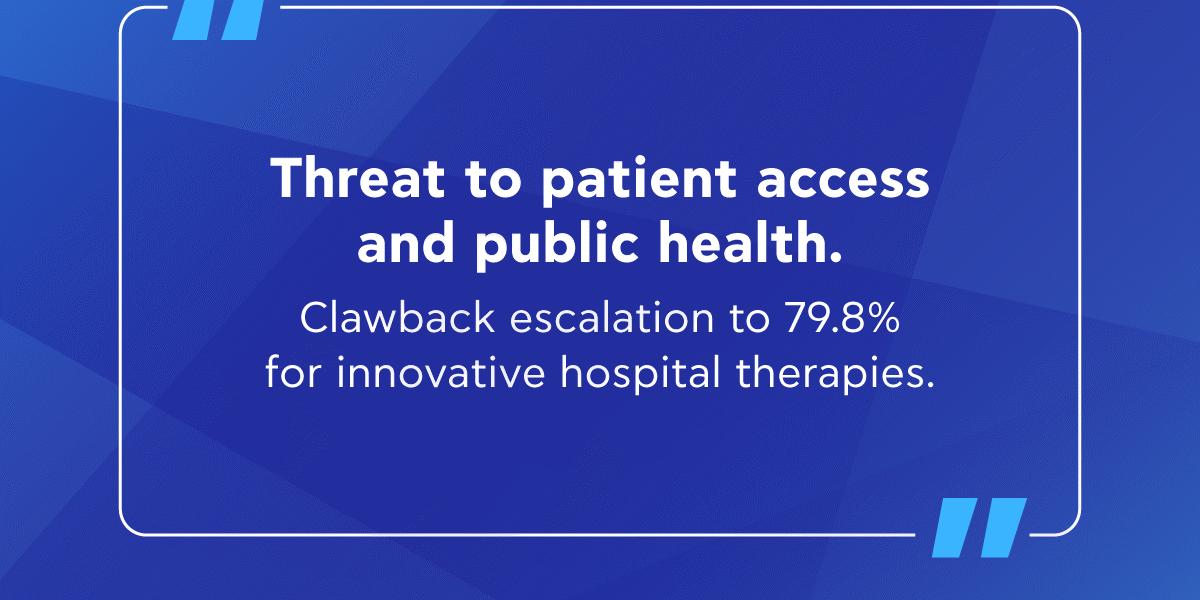A threat to patient access and public health
PhARMA Innovation Forum (PIF) expresses its deep concern regarding the official data released by EKAPY (National Central Health Procurement Authority) – with a delay of more than a year – to our member companies. Once again, the figures reveal a complete derailment of the public budget for innovative hospital medicines and of the corresponding clawback mechanism. The hospital clawback for medicines priced above €30 reached 79.8% in the first half of 2024, compared to 83% in the same period of 2023 – a marginal decrease, far from the 69% projection repeatedly announced by the Ministry of Health in recent months.
This means that the Government effectively covered only 2 out of 10 innovative therapies for patients with severe conditions such as cancer, autoimmune, rare, and other chronic or life-threatening diseases. Despite the critical role of these medicines in public health – as they demonstrably extend survival, reduce complications, and improve quality of life – the Government persists in extreme underfunding, shifting the burden of cost to biopharmaceutical companies.
In this context, PIF requested and immediately held a meeting with the Minister of Health, stressing that the memorandum-era measure of clawback has de facto led pharmaceutical policy into collapse. We will closely monitor in the coming weeks the Minister’s commitment to a correction expected with the H2/2024 notes, which should bring the mandatory repayments for innovative hospital medicines down to 69% for the full year. Otherwise, as pledged, the Ministry must proceed with a retroactive fiscal adjustment to ensure at least that target is met.
However, even if such a correction materializes, it is evident that it will not suffice to resolve the deadlock surrounding access to innovative therapies in Greece. The consequences of underfunding are already visible: patients face increased risks of delays, exclusions, or treatment interruptions; the launch of new medicines in the Greek market becomes increasingly uncertain; and the country continues to lose ground as a destination for clinical research investment.
For these reasons, there is an urgent need for a substantial increase in the hospital medicines budget, full Government coverage of the cost protection for medicines under €30 – which added 12 percentage points to clawback in H1/2024 – and an end to the use of clawback as the sole criterion in negotiations. Instead, clinical value must be duly considered in reimbursement decisions, as is the case across other European countries. Furthermore, any increase in public pharmaceutical spending must finally be distributed solely on the basis of equalizing overspending across the three channels of provision (hospitals, EOPYY, community pharmacies).
The deepening underfunding of innovative therapies is not merely a budgetary issue. It is a critical national challenge that directly impacts public health and the country’s overall growth prospects. The Government must act decisively, with patients at the center. PIF stands ready to support meaningful solutions. But the current situation cannot continue.









